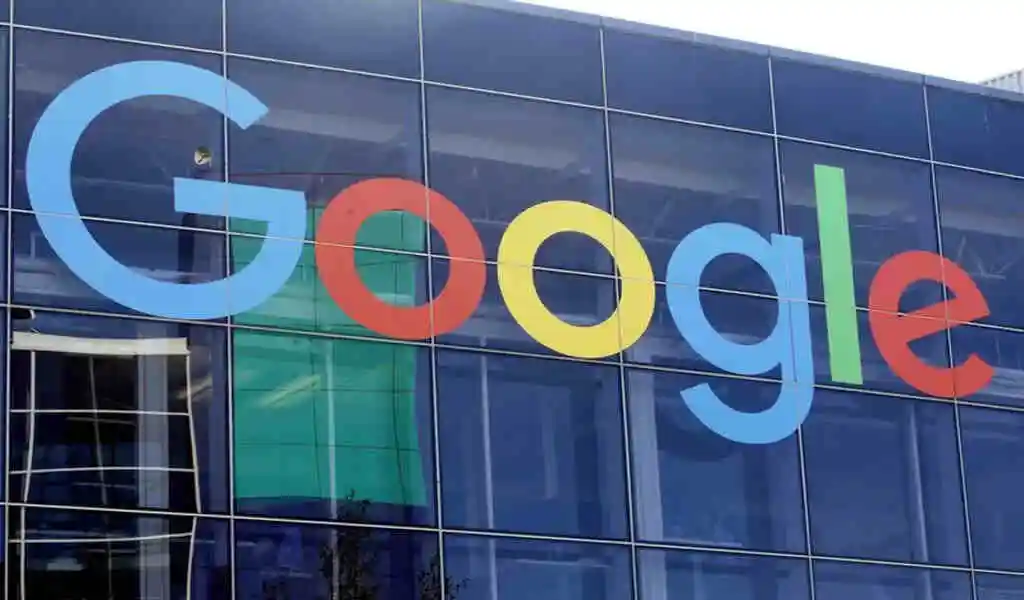Business
Google’s Millisecond Ad Auctions Are The Focus Of A Monopoly Claim

Alexandria, Virginia – It happens in milliseconds, preferably as you browse the internet. Computer and software networks analyze who you are, and what you are looking at, and buy and sell website adverts.
Google is most likely responsible for determining which ads you see and how much an advertiser pays to be on your screen.
AP News Image
Google’s Millisecond Ad Auctions Are The Focus Of A Monopoly Claim
In reality, the Justice Department and a coalition of states argue that Google’s domination over the technology that governs the sale of billions of Internet display ads every day represents an illegal monopoly that should be split up.
A trial is underway in federal court in Alexandria, Virginia, to establish if Google’s ad tech stack represents an illegal monopoly. The first week has included a thorough examination of how Google’s products interact to perform behind-the-scenes computerized auctions that place advertising in front of people in the blink of an eye.
Online advertising has grown rapidly. If you saw an online display ad fifteen years ago, there was a high chance it depicted individuals dancing over their excitement for cheap mortgage rates, and those commercials were pushed on you whether you were browsing real estate or checking for baseball statistics.
AP News Image
Google, for its part, claims to have invested billions of dollars in improving the quality of ads seen by consumers and ensuring that marketers can reach the consumers they seek.
According to the Justice Department, Google has also rigged automated ad sales auctions to favor itself over other would-be industry players, denying the publishing industry hundreds of millions of dollars that it would have received if the auctions were truly competitive.
During the Virginia trial, government witnesses detailed the auction process and how it has developed over time.
In the government’s picture, three distinct instruments work together to sell an ad and present it in front of a consumer. There are ad servers that publishers use to sell space on their websites, particularly the rectangular advertising that displays at the top and right sides of a page. Ad networks are used by advertisers to purchase ad space on a variety of related websites.
Publishers naturally want to earn the highest possible price for their ad space, but testimony at trial revealed that this did not always occur due to Google’s policies.
For years, Google provided its ad exchange, AdX, the first opportunity to match a publisher’s requested floor price. For example, if a publisher wished to sell an ad impression for at least 50 cents, Google’s engine would prioritize its own ad exchange. If Google’s ad exchange bid 50 cents, it would win the auction, even if competing ad exchanges offered higher bids later on.
AP news Image
Google’s Millisecond Ad Auctions Are The Focus Of A Monopoly Claim
Google claimed the approach was required to ensure advertising loaded promptly. It would be too time-consuming for the computers to accept bids from every ad exchange.
Publishers were displeased with the system and devised a workaround to conduct auctions outside of Google’s purview, a procedure known as “header bidding.” Internal Google documents presented at the trial depicted header bidding as a “existential threat” to Google’s market domination.
Google’s reaction was based on its control over all three components of the process. If publishers held an auction outside of Google’s purview but still used Google’s publisher ad server, DoubleClick For Publishers, the program would force the winning bid back into Google’s Ad Exchange. If Google was willing to match the price earned by publishers in the header-bidding auction, it would win the auction.
According to Professor Ramamoorthi Ravi, an expert at Carnegie Mellon University, Google’s regulations failed to maximise value for publishers and “seem to have been designed to advantage Google’s own products.”
Publishers could cease utilising Google’s ad exchange totally, but they were hesitant to do so at trial because it would mean losing access to Google’s massive, exclusive cache of advertisers in its Google Ads network, which was only accessible through Google’s ad exchange.
Google, for its side, claims that it has not conducted auctions in this manner since 2019, and that its proportion of the display ad market has dwindled over the last five years. It claims that integrating its buy side, sell side, and middleman solutions allows them to work more smoothly and rapidly, while also reducing the danger of misleading ads or malware.
Google also claims that its developments over the previous 15 years have helped to better the matching of internet adverts to consumer interests. Google claims it was at the vanguard of introducing “real-time bidding,” which allowed an advertiser selling shoes, for example, to be matched with a consumer whose web profile indicated an interest in purchasing shoes.
According to Google, these developments enabled publishers to charge a premium for their available ad space because the advertiser knew the ad would be seen by someone interested in their product or service.
According to the Justice Department, even though Google no longer conducts auctions in the manner described, it assisted Google in maintaining its monopoly in the ad tech market in the years preceding 2019, and that its current monopoly allows Google to keep up to 36 cents on the dollar of every ad purchase it brokers when the transaction runs through all of its various products.
The Virginia trial comes barely a month after a court in Washington ruled that Google’s search engine is also an unconstitutional monopoly. There has been no ruling in that case as to what remedies, if any, the judge will impose.
SOURCE | AP







































